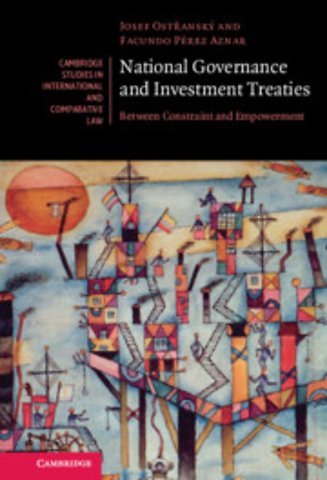National Governance and Investment Treaties
Between Constraint and Empowerment
Samenvatting
Much of the existing accounts assume that investment treaties affect national governance. However, how exactly this happens has been subject to little analysis. Conventional accounts presume that these treaties improve national governance, leading to good governance and the rule of law for all. Critical accounts charge that investment treaties unduly empower foreign investors and cause a regulatory chill. On both accounts, investment treaties are expected to empower and constrain. Comparing extended case studies of Argentina, the Czech Republic, India and Mexico, this book shows how investment treaties influence national governance ideologically, institutionally, and socially. We show how the overarching role of IIAs in national governance – to cultivate constraining discipline in public administration – is realised and who gets empowered and marginalised in the process. The book's findings will serve in the debates about alternative ways of economic governance and help explain the investment treaty regime's significant resistance to change.
Specificaties
Inhoudsopgave
Net verschenen
Rubrieken
- aanbestedingsrecht
- aansprakelijkheids- en verzekeringsrecht
- accountancy
- algemeen juridisch
- arbeidsrecht
- bank- en effectenrecht
- bestuursrecht
- bouwrecht
- burgerlijk recht en procesrecht
- europees-internationaal recht
- fiscaal recht
- gezondheidsrecht
- insolventierecht
- intellectuele eigendom en ict-recht
- management
- mens en maatschappij
- milieu- en omgevingsrecht
- notarieel recht
- ondernemingsrecht
- pensioenrecht
- personen- en familierecht
- sociale zekerheidsrecht
- staatsrecht
- strafrecht en criminologie
- vastgoed- en huurrecht
- vreemdelingenrecht

